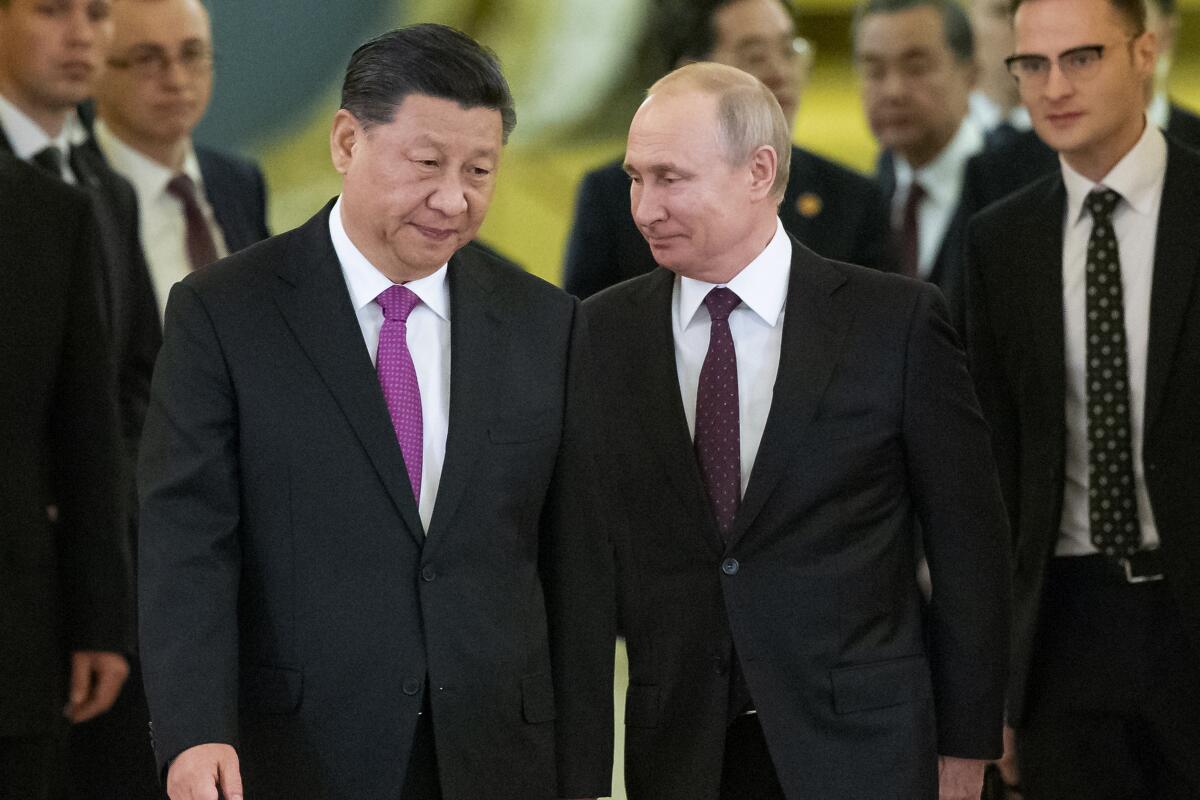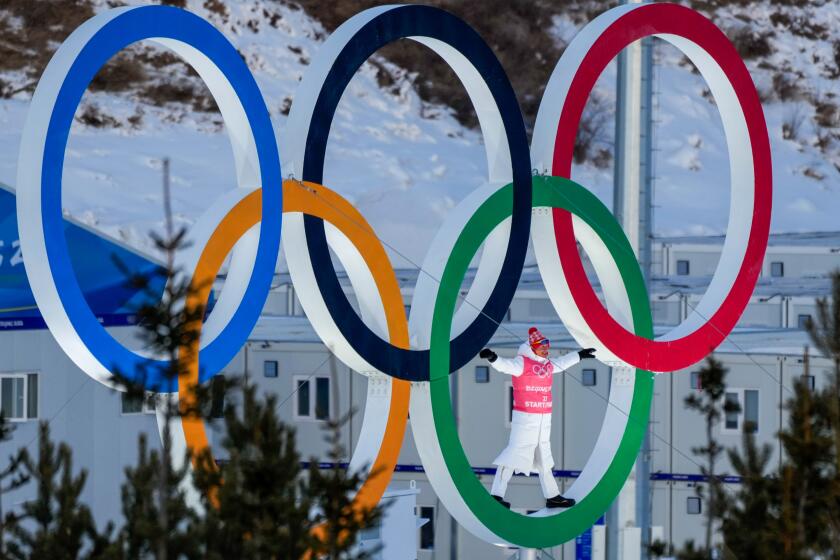World leaders and the Beijing Games: Who’s coming, who’s not

BEIJING — The U.S., Britain and a handful of other nations are declining to send dignitaries to the Beijing Winter Games as part of a diplomatic boycott, but the Chinese capital is still attracting an array of world leaders for Friday’s opening ceremony.
A look at who’s attending, who’s staying away and why:
Attending
— RUSSIA: President Vladimir Putin is meeting his Chinese counterpart, Xi Jinping, ahead of the opening ceremony, underscoring closer ties between Beijing and Moscow as they both face Western criticism and pressure.
— EGYPT AND SERBIA: Egyptian President Abdel Fattah Sisi and Serbian President Aleksandar Vucic have growing frictions with the West over their authoritarian policies and human rights records. Both leaders have gravitated toward China. Vucic called Xi his “brother” for supplying Serbia with respirators and COVID-19 vaccines.
— SAUDI ARABIA, QATAR, UNITED ARAB EMIRATES: Beijing’s relations with Persian Gulf countries are above all about energy. China is Saudi Arabia’s largest buyer of oil and a major customer for Qatar’s natural gas. Saudi Crown Prince Mohammed bin Salman, the kingdom’s de facto leader, is appearing at the Winter Games as investors and some governments signal warming relations after the 2018 killing of journalist Jamal Khashoggi.
As the Games return to Beijing in their winter format, the stakes have changed. It might be enough just to avoid calamity.
— CENTRAL ASIA: The leaders of all five former Soviet republics in Central Asia are heading to Beijing, highlighting the region’s increasingly close ties with China. Kyrgyzstani President Sadyr Zhaparov pushed last month for the revival of a long-delayed project to build a railroad from China through his country to Uzbekistan. China is Turkmenistan’s only reliable major buyer of natural gas.
— ARGENTINA AND ECUADOR: Argentina is set to become the first major Latin American country to join China’s Belt and Road Initiative. President Alberto Fernández is also expected to discuss China’s help in building Argentina’s first nuclear power plant since 1981. President Guillermo Lasso is seeking to renegotiate Ecuador’s $4.6-billion debt with China.
— UNITED NATIONS: Secretary-General Antonio Guterres and WHO Director-General Tedros Adhanom Ghebreyesus will attend. The International Olympic Committee is a close partner of the U.N., Guterres said, and the Olympics bring together people with a message of solidarity and peace. “This is ... a message that, in my opinion, is more relevant than the political circumstances that exists in the countries where the Olympics take place,” he told the Associated Press.
Not attending
— BOYCOTTS: The United States announced a diplomatic boycott while allowing its athletes to compete. Major U.S. allies followed, including Britain, Australia and Canada, whose Prime Minister Justin Trudeau said: “We are extremely concerned by the repeated human rights violations by the Chinese government.” Kosovo and Lithuania, whose relations with China have nose-dived over their ties with Taiwan, are also taking part in the boycott. India said it won’t send any officials following reports that a Chinese military commander who was involved in deadly clashes with Indian border forces in 2020 had been chosen as one of the Olympic torchbearers in Beijing.
— NON-BOYCOTTERS: The Norwegian and Swedish royals, who normally attend the Winter Olympics, aren’t going. Neither are any leaders from Germany, Austria or Switzerland, all big winter sports nations. Officially they’re citing the pandemic rather than any diplomatic protest. Others such as Denmark, the Netherlands and New Zealand have cited COVID-19 restrictions while also expressing concern over China’s human rights situation.
More to Read
Go beyond the scoreboard
Get the latest on L.A.'s teams in the daily Sports Report newsletter.
You may occasionally receive promotional content from the Los Angeles Times.







